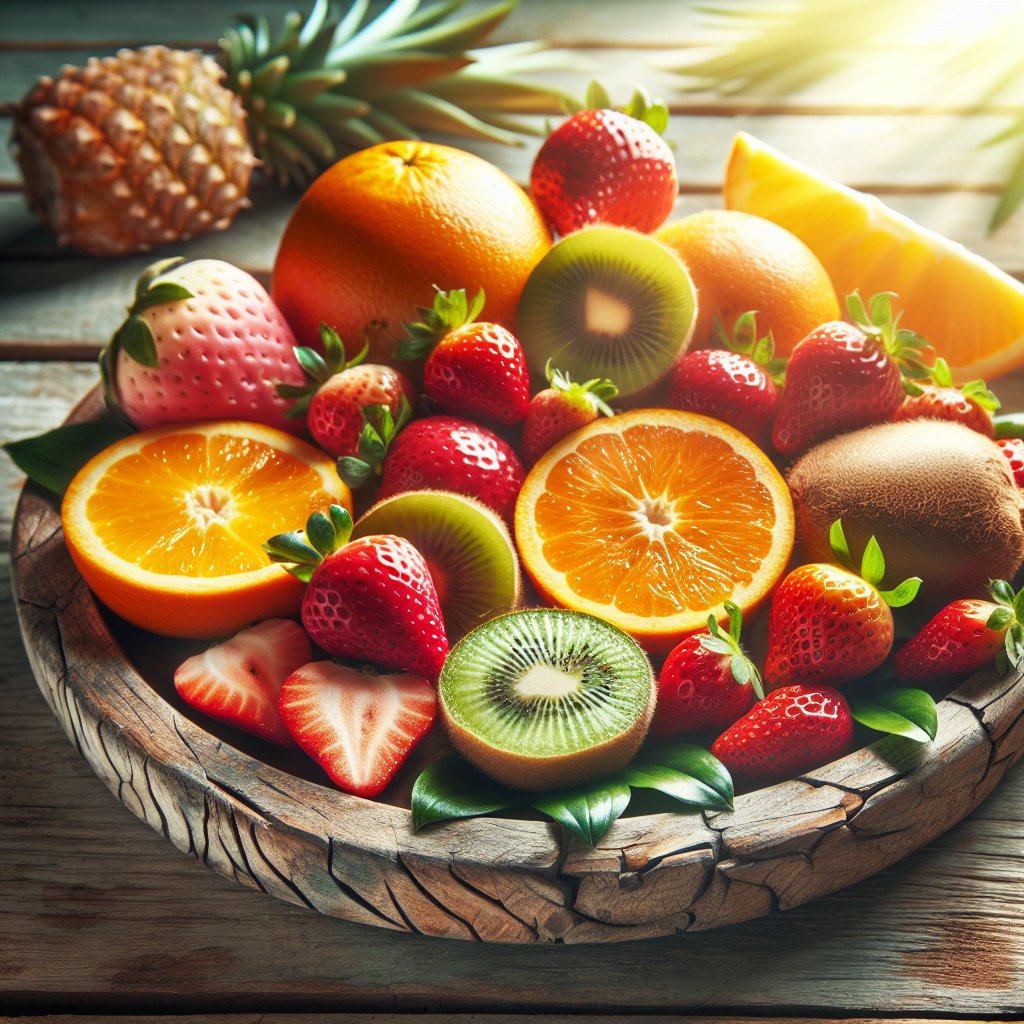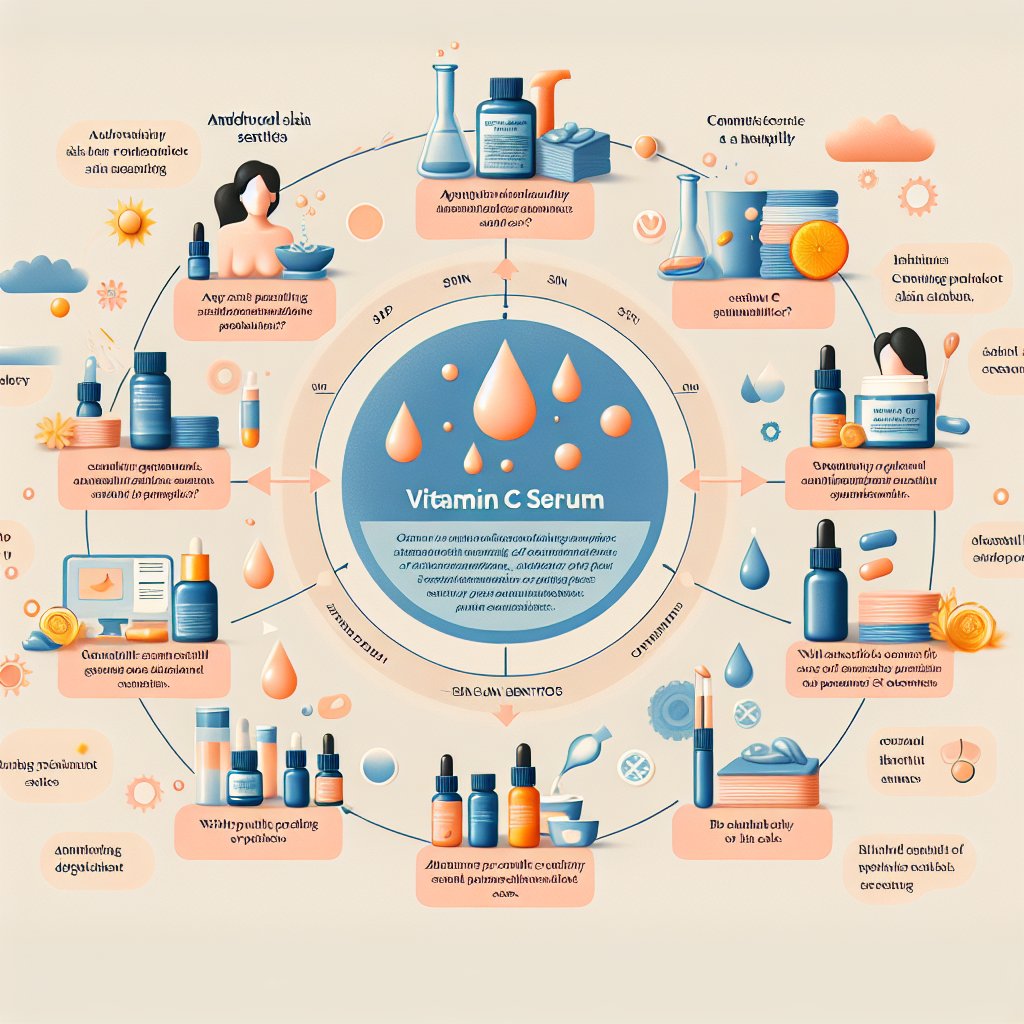Boost Your Energy Naturally: Does Vitamin C Give You Energy? Unveiling the Vital Connection Between Vitamin C and Daily Vitality
Unveiling the Vital Connection Between Vitamin C and Daily Vitality
Hey there, foodies! Today, we’re diving into the fascinating world of energy and the role of Vitamin C in giving us that much-needed boost. We all strive to live our best lives and stay energized throughout the day, but sometimes it feels like a constant battle, right?
Well, let’s uncover the secrets behind sustaining that zest for life and exploring the potential of Vitamin C in enhancing our energy levels. But first, let’s delve into the importance of energy in our daily lives.
The Importance of Energy in Daily Life
Energy is the driving force behind everything we do. From the moment we open our eyes in the morning to the time we lay our heads down at night, energy influences our productivity, mood, and overall well-being. Whether it’s tackling our to-do lists, engaging in physical activity, or maintaining mental focus, energy is the cornerstone of a fulfilling and dynamic lifestyle.
Without sufficient energy, we may feel sluggish, mentally foggy, and unable to perform at our best. That’s where the role of Vitamin C comes into play. Let’s uncover how this essential nutrient can amplify our vitality.
The Role of Vitamin C in Boosting Energy Levels
So, does Vitamin C give you energy? The answer is a resounding yes! Vitamin C, also known as ascorbic acid, is a powerhouse when it comes to supporting our energy levels. How does it work? Well, research has shown that Vitamin C plays a crucial role in the production of carnitine, a compound that helps the body convert fat into energy.
Moreover, Vitamin C enhances the absorption of iron – a mineral vital for maintaining optimal energy levels. By bolstering iron absorption, Vitamin C ensures that our cells receive an adequate oxygen supply, promoting sustained energy throughout the day.
Now that we’ve unveiled the crucial connection between Vitamin C and daily vitality, let’s explore how we can naturally incorporate this incredible nutrient into our lives for a sustained energy boost!

Benefits of Vitamin C for Energy Levels
When it comes to boosting your energy naturally, few essentials are as vital as vitamin C. Not only is it an excellent immune system booster, but it also plays a crucial role in energy production and reducing fatigue.
A study published in the “Nutrients” journal revealed that vitamin C is intricately involved in the synthesis of carnitine, a molecule essential for the production of energy in the body. Carnitine helps transport fatty acids into the mitochondria, where they are then converted into adenosine triphosphate (ATP), the primary energy currency of the cell. This means that adequate levels of vitamin C are necessary for optimal energy production at a cellular level, thereby helping to combat feelings of tiredness and exhaustion.
Furthermore, vitamin C is a powerful antioxidant, effectively combating oxidative stress caused by free radicals in the body. Oxidative stress can lead to fatigue and reduced energy levels, and by neutralizing these free radicals, vitamin C helps in maintaining overall vitality and vigor.
So, how does vitamin C give you energy? By supporting the production of carnitine and combating oxidative stress, vitamin C ensures that your cells have the necessary tools to create energy efficiently, leading to enhanced vitality and reduced fatigue.
Incorporating vitamin C-rich foods such as bell peppers, strawberries, kiwi, and broccoli into your daily diet can significantly contribute to optimizing your energy levels and combating fatigue. Additionally, considering vitamin C supplementation, especially for individuals with deficiency or increased oxidative stress, could be beneficial in maintaining optimal energy levels throughout the day.
List of Natural Food Sources Rich in Vitamin C
When it comes to boosting our energy levels naturally, we often overlook the importance of essential vitamins and minerals. Vitamin C, in particular, plays a vital role in supporting our overall vitality. Let’s explore some powerful natural food sources that are incredibly rich in this essential nutrient.
Citrus Fruits
Citrus fruits are famous for being packed with vitamin C, making them an excellent choice for a natural energy boost. Oranges, grapefruits, lemons, and limes are not only delicious but also fantastic sources of this vital nutrient. Adding a serving of these fruits to your daily diet can contribute significantly to your overall energy levels.
Berries
Delicious and vibrant, berries such as strawberries, raspberries, and blueberries are not only rich in antioxidants but also provide a good dose of vitamin C. Whether enjoyed as a snack, added to smoothies, or mixed into yogurt, these colorful fruits can help enhance your daily vitality.
Kiwi
This small, fuzzy fruit is a powerhouse of nutrition. Kiwi is loaded with vitamin C, making it an energizing addition to your diet. It’s perfect for giving you that extra boost to power through your day.
Broccoli
Surprisingly, broccoli is also a great source of vitamin C. This versatile vegetable is not only high in fiber and low in calories but also provides a generous amount of this essential nutrient. Adding broccoli to your meals can ensure you’re getting a good dose of vitamin C for sustained energy.
Red Bell Peppers
Red bell peppers are known for their sweet flavor and vibrant color, but they are also one of the top vegetable sources of vitamin C. Whether eaten raw with hummus or cooked into a stir-fry, red bell peppers can definitely contribute to your daily energy levels.
By incorporating these natural food sources rich in vitamin C into our daily diet, we can enjoy a steady and sustainable boost in our overall energy and vitality.
Supplements for an Energy Boost
While obtaining vitamin C from natural food sources is ideal, sometimes our busy lives may make it challenging to ensure we are getting an adequate amount solely from our diet. In such cases, incorporating supplements can be beneficial in supporting our energy levels.
It’s important to note that supplements should never be a replacement for a healthy and balanced diet, but they can certainly complement our nutritional needs. When choosing a vitamin C supplement, opt for a high-quality product from a reputable source to ensure effectiveness.
Vitamin C Supplements
There are various forms of vitamin C supplements available, including capsules, chewable tablets, and powdered forms that can be mixed into beverages. When considering a vitamin C supplement for energy, it’s essential to follow the recommended dosage and consult a healthcare professional if you have any existing health conditions or are currently taking medications.
Multivitamins
Another option to ensure you’re getting an adequate intake of vitamin C and other essential nutrients is to incorporate a high-quality multivitamin into your daily routine. A good multivitamin can provide a comprehensive range of vitamins and minerals to support overall energy and vitality.
Regardless of whether you choose to obtain your vitamin C from natural food sources, supplements, or a combination of both, the key is to be consistent in supporting your body’s need for this essential nutrient.
By being mindful of our vitamin C intake and making conscious choices to include it in our diet, we can truly experience a tangible enhancement in our daily energy levels, allowing us to approach each day with vitality and vigor.
Recommended Daily Intake of Vitamin C
When it comes to optimizing your energy levels, one of the key players in the game is Vitamin C. This essential nutrient not only boosts your immune system but also plays a crucial role in energy production within the body. So, how much Vitamin C do you really need to keep your energy levels up?
According to the National Institutes of Health, the recommended daily intake of Vitamin C for adult women is 75 milligrams per day. However, during pregnancy, the recommended amount increases to 85 milligrams per day, and for lactating women, it is 120 milligrams per day. It’s important to note that these recommendations may vary based on individual factors, so it’s always best to consult with a healthcare professional to determine the right dosage for you.
While the daily recommended intake provides a general guideline, some research suggests that higher doses of Vitamin C may have benefits for overall health and energy levels. A study published in the “Nutrients” journal indicates that Vitamin C supplementation may help reduce fatigue and improve physical activity levels, particularly in individuals with low levels of Vitamin C. This suggests that Vitamin C does have a role in promoting energy and reducing feelings of tiredness.
Additionally, Vitamin C is a powerful antioxidant that helps combat oxidative stress in the body. Oxidative stress can lead to fatigue and decreased energy levels, so ensuring an adequate intake of Vitamin C can help mitigate these effects and keep your energy levels up.
Potential Side Effects of Excessive Vitamin C Intake
While vitamin C offers numerous health benefits, consuming it in excessive amounts for the purpose of boosting energy may lead to potential side effects. It’s important to understand that despite its energy-boosting properties, there can be risks associated with consuming too much vitamin C.
Impaired Digestive Health
Excessive intake of vitamin C can lead to digestive discomfort. Some people may experience symptoms such as diarrhea, nausea, and stomach cramps. This is due to the fact that the body does not absorb all the excess vitamin C, leading to gastrointestinal disturbances.
Impact on Kidney Function
High doses of vitamin C can put strain on the kidneys. The kidneys are responsible for filtering out excess vitamin C, and prolonged excessive intake could potentially lead to kidney stones or other complications in individuals with preexisting kidney issues.
Iron Absorption Interference
Excessive intake of vitamin C can interfere with the body’s ability to absorb iron, a crucial mineral for energy production. This can be particularly concerning for individuals who already have low iron levels or are at risk of anemia, as it may exacerbate these conditions and lead to fatigue.
Increased Oxalate Levels
Another potential risk of consuming too much vitamin C is the increase in oxalate levels in the body. High oxalate levels can contribute to the formation of kidney stones, posing a risk to kidney health.
It’s important to note that these potential side effects are typically associated with consuming vitamin C in excessive amounts, often through supplementation, rather than from natural food sources. If you’re obtaining your vitamin C from a balanced diet rich in fruits and vegetables, it’s unlikely that you will experience these side effects.
It’s always best to consult with a healthcare professional before significantly increasing your vitamin C intake, especially if it’s for the purpose of boosting energy. They can provide personalized recommendations based on your health status and nutritional needs.
Now that we’ve explored the potential risks of excessive vitamin C intake, let’s delve into the optimal sources of vitamin C and how to incorporate it into your diet for natural energy enhancement.

Can Vitamin C Deficiency Lead to Fatigue?
Let’s dive into the fascinating world of Vitamin C and its vital role in our daily energy levels. Research has shown a strong link between Vitamin C deficiency and low energy levels, making it crucial to understand the impact of this essential nutrient on our overall vitality.
The Science Behind it
Studies have revealed that Vitamin C plays a significant role in producing carnitine, a compound that helps the body convert fat into energy. Additionally, Vitamin C is essential for the synthesis of neurotransmitters like norepinephrine, which are involved in the regulation of mood and energy levels. Furthermore, a lack of Vitamin C can lead to fatigue and lethargy due to its role in iron absorption. Iron is crucial for transporting oxygen throughout the body, and its deficiency can cause anemia, leading to fatigue and weakness.
This scientific evidence highlights the vital connection between Vitamin C and daily vitality, indicating that a deficiency in this essential nutrient can indeed lead to low energy levels.
Best Practices for Incorporating Vitamin C into Your Diet
As we’ve learned, vitamin C plays a crucial role in maintaining our energy levels, but how can we ensure we’re getting enough in our daily diet? Here are some tips on how to include vitamin C-rich foods in your meals to sustain your energy levels naturally:
Start Your Day with Citrus
One of the easiest ways to incorporate vitamin C is by starting your day with a glass of freshly squeezed orange juice or adding a slice of lemon to your water. Citrus fruits like oranges, grapefruits, and lemons are not only refreshing but also packed with vitamin C!
Snack on Berries
Berries such as strawberries, raspberries, and blackberries are not only delicious but also loaded with vitamin C. Snack on a handful of these colorful, sweet treats to keep your energy levels up throughout the day.
Include Leafy Greens in Your Meals
Adding kale, spinach, or Swiss chard to your salads, smoothies, or sautés can significantly boost your vitamin C intake. These leafy greens are not only rich in vitamin C but also offer an array of other essential nutrients for your body.
Roast Some Red Bell Peppers
Red bell peppers are an excellent source of vitamin C. Roast them in the oven with a drizzle of olive oil and seasoning for a tasty side dish or add them to your sandwiches, wraps, or salads for an extra punch of vitamin C.
By incorporating these vitamin C-rich foods into your daily meals, you can sustain your energy levels and support your overall well-being naturally.
Remember, when it comes to energy, it’s not just about what you eat but also how you eat. Enjoy your meals mindfully, savoring the flavors and nourishing your body.
Consult a Healthcare Professional
Before making any significant changes to your Vitamin C intake for energy improvement, it’s crucial to consult a healthcare provider. While Vitamin C is a vital nutrient for overall health and wellness, excessive intake can lead to adverse effects, and individual needs vary based on factors such as age, gender, and existing health conditions.
Research has shown that Vitamin C plays a crucial role in energy production within the body by facilitating the absorption of iron, a key component in the formation of red blood cells that carry oxygen throughout the body. However, it’s essential to note that the impact of Vitamin C on energy levels can vary from person to person, and the body’s ability to absorb and utilize Vitamin C can differ based on various factors.
When considering adjustments to your Vitamin C intake for energy enhancement, seeking guidance from a healthcare professional can provide personalized insights tailored to your specific needs and circumstances. They can assess your current Vitamin C levels, discuss potential benefits and risks, and help create a balanced and effective plan to support your energy levels and overall well-being.
It’s important to remember that while Vitamin C is an essential nutrient, there are limits to its benefits, and excessive intake can lead to unwanted side effects. Consulting a healthcare professional ensures that any changes to your Vitamin C regimen are in line with your individual health goals and overall wellness.
Conclusion: Unveiling the Vital Connection Between Vitamin C and Daily Vitality
So, there you have it! We’ve delved deep into the scientifically-backed relationship between vitamin C and energy levels, and the findings are truly illuminating. Research consistently supports the vital role that this incredible vitamin plays in optimizing our daily vitality, and it’s clear that maintaining adequate levels of vitamin C is crucial for sustaining energy levels.
Key Points about the Relationship Between Vitamin C and Energy Levels
1. Energy Production: Vitamin C is essential for the synthesis of carnitine, a molecule responsible for the transport of fatty acids into the mitochondria for energy production. By aiding in this process, vitamin C directly contributes to the body’s natural energy production.
2. Fighting Fatigue: Studies have shown that vitamin C has the potential to reduce fatigue and support endurance, especially during physical exertion. This means that incorporating adequate vitamin C into your diet could help you power through your daily activities with more ease and vigor.
3. Enhanced Absorption of Iron: Vitamin C plays a pivotal role in enhancing the absorption of non-heme iron from plant-based sources. As iron is crucial for the transportation of oxygen throughout the body, its efficient absorption contributes to overall energy levels.
4. Antioxidant Properties: The potent antioxidant properties of vitamin C protect the body from oxidative stress and inflammation. By combating oxidative damage, vitamin C ensures that our cells and tissues remain healthy and function optimally, thus contributing to sustained energy levels.
5. Stress Management: Vitamin C has been shown to help regulate cortisol levels, the hormone associated with stress. By supporting the body’s response to stress, vitamin C indirectly helps to maintain consistent and steady energy levels.
In conclusion, the science unequivocally affirms the vital link between vitamin C and daily vitality. From its role in energy production and fatigue reduction to its antioxidant properties and impact on stress management, vitamin C emerges as an indispensable nutrient for sustaining optimal energy levels throughout the day. It’s clear that prioritizing vitamin C in your dietary and lifestyle choices can significantly impact your overall sense of vigor and vitality.
So, whether you’re savoring a tangy citrus fruit, blending up a refreshing green smoothie, or simply popping a vitamin C supplement, you’re actively fueling your body with the essential support it needs to power through each day with a vibrant and energetic spirit. Embrace the power of vitamin C, and let your daily vitality soar!


